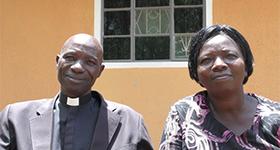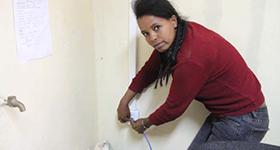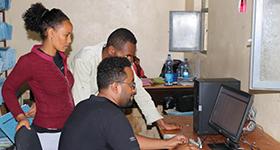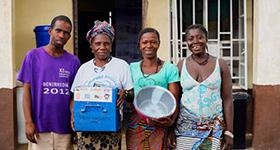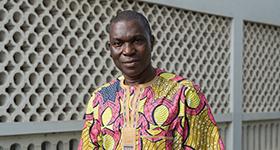Background
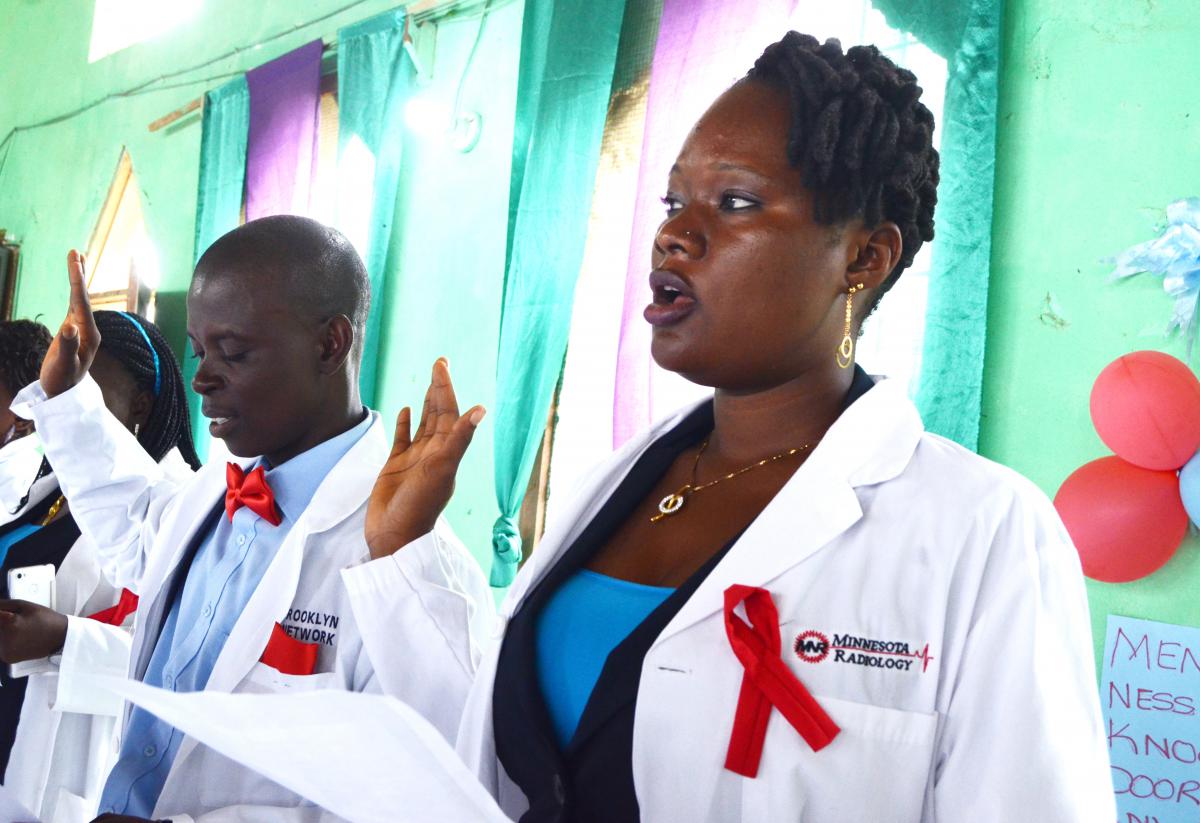
A clinician participates in Phebe Paramedical Training Institute’s mental health clinician graduation.
There are myriad barriers to mental health care in Liberia, including the severe deficit of trained health workers with expertise in mental health and high levels of stigma experienced by individuals with mental health conditions at the community and health facility levels.
The USAID-funded Ebola Transmission Prevention & Survivor Services (ETP&SS) program, implemented by the Advancing Partners & Communities project, supported a post-basic mental health training program at the Phebe Paramedical Training Institute to reduce these barriers. The program, which began in September 2017, has trained 38 mental health clinicians to better understand, screen for, and provide mental health services.
Intervention
The APC program has supported two cohorts of mental health clinician trainees, training 38 mid-level health workers. Dr. Julius Muron, a consulting psychiatrist and chief facilitator of the Mental Health Clinician Training Program, explains “We give the students a basic assessment test when they come in to measure their attitudes, knowledge, and experience providing care to people who have mental health problems. The assessment also measures their awareness of community stigma and practices toward people with mental health problems. We assess the students again after training and during clinical placement to see if they are retaining and practicing what they learned.”
The health workers continue to receive encouragement and professional guidance from Dr. Muron and the Mental Health Clinician Training Program team following graduation. The trained clinicians get onsite supervision from the specialists, which improves how they manage patients with mental and physical health problems. Some trainees went to clinics that had no mental health services and set them up. Now more clinics in counties that were affected by Ebola offer mental health services. And in hospitals, collaboration between mental health clinics and other wards has improved.
Outcomes
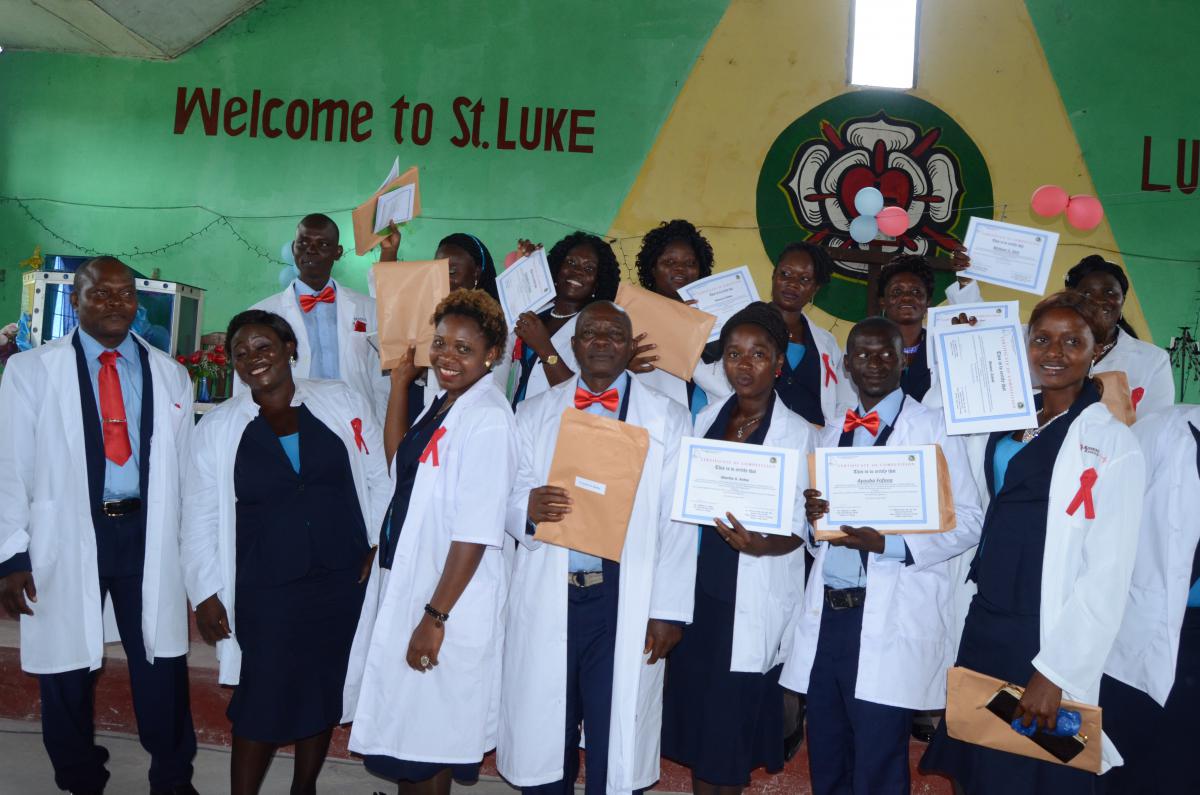
38 mid-level health workers graduated from the mental health clinician trainings.
The mental health clinician trainees are excited about the skills they’ve acquired through the training program. “When we go back to our various places of work, we will know the difference between stress, depression, grief, anxiety, and other illnesses and we will also be able to treat them, ” says a mental health clinician trainee, Orenon M. Joseph. “We used to refer to people with mental health issues as “crazy,” but I cannot do that anymore. I’m unable to even separate them from myself. This training has had a great impact on my life, even my social life. I have learned to have compassion for people with mental illness and I pray to help my community treat them with patience and kindness.” These sentiments were expressed by several other mental health clinician trainees who collectively believe that the training has reinforced their passion for mental health, a calling they feel strongly about.
The APC program has laid a solid foundation for the future of mental health services in Liberia. Dr. Muron affirmed, “I’m extremely satisfied with what we’ve been able to do in this period of time, because I know that the mental health clinicians we’re sending out there to do the job are well-qualified, have a lot of skills, and are very enthusiastic. They are pioneering high-quality mental health services in the country.”

